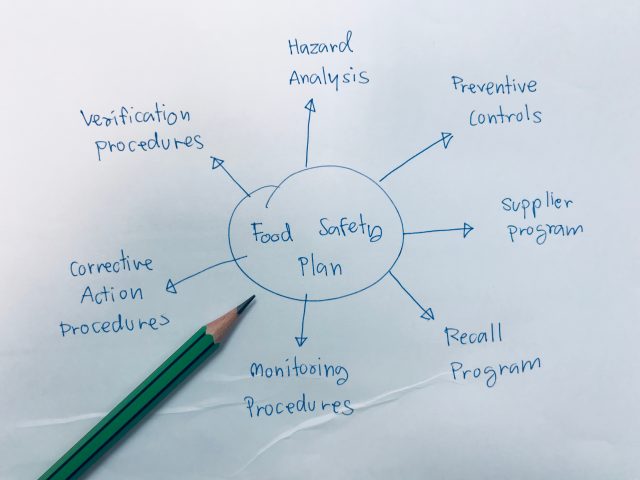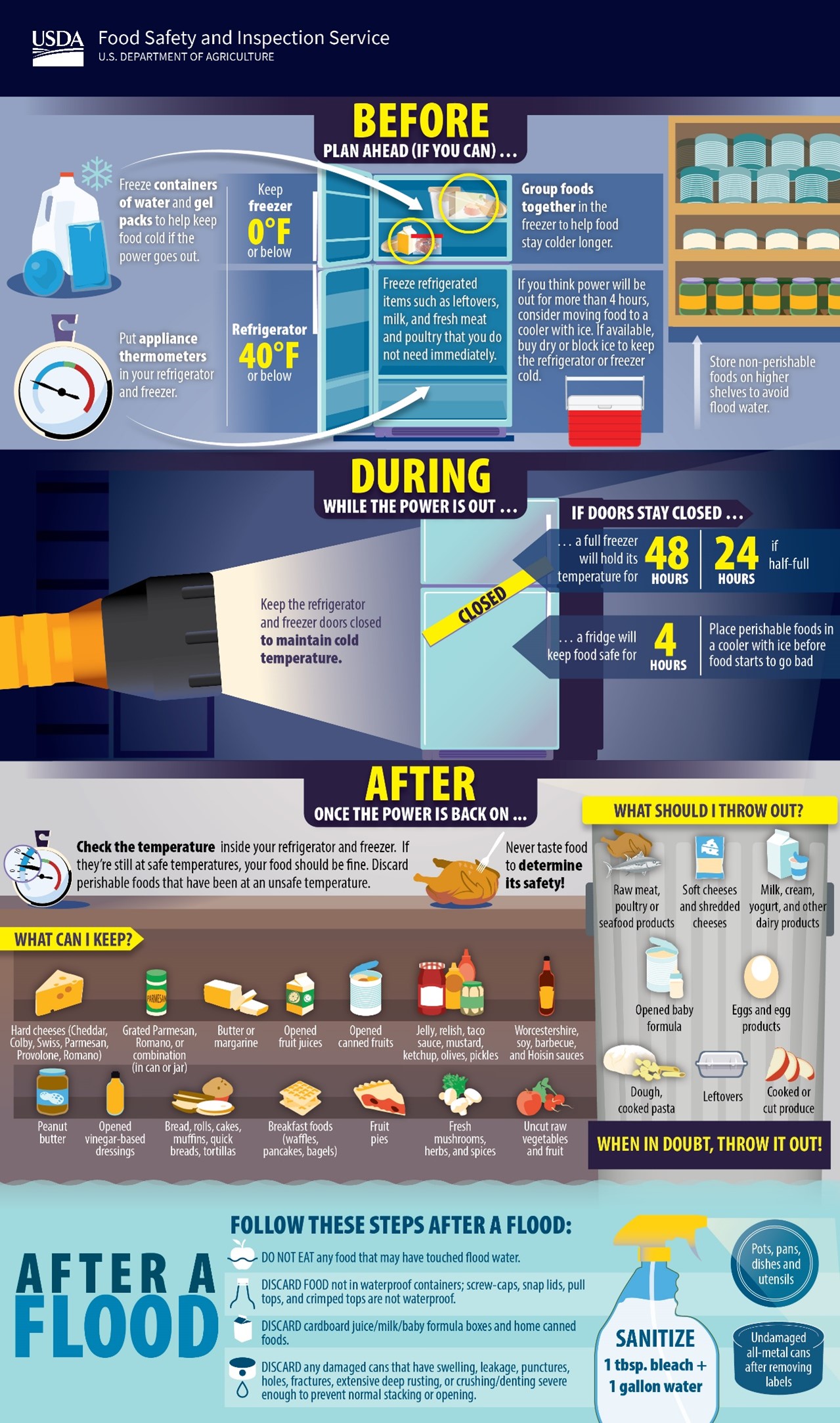A food safety plan is a framework designed to ensure the safe handling, processing, and preparation of food products, minimizing the risk of foodborne illnesses. It includes procedures, guidelines, and controls to prevent contamination, monitor critical control points, and respond to potential hazards.
In today’s world, with increasing concerns about food safety, it is crucial for food businesses to have a solid food safety plan in place. This plan provides a systematic approach to identify and manage potential risks throughout the entire food production process, from sourcing ingredients to serving the final product.
By implementing a food safety plan, organizations can protect the health and well-being of consumers, comply with regulatory requirements, and build trust and confidence in their products. We will delve deeper into the importance of food safety plans and explore key elements that businesses should consider when developing and implementing one.

Credit: www.safefoodaustralia.com.au
Importance Of Food Safety In The Food Industry
Food safety plans are crucial in the food industry for various reasons. Firstly, they ensure consumer protection by preventing foodborne illnesses. Additionally, these plans play a vital role in maintaining the brand reputation of food businesses. By implementing and following strict safety measures, companies can build trust and loyalty among customers.
Moreover, having a well-defined food safety plan allows businesses to comply with regulatory requirements. It ensures that they meet necessary standards set by governing bodies and avoid legal issues. Ultimately, prioritizing food safety not only protects consumers but also enhances the overall reputation and success of food companies.
So, it is essential for all food businesses to establish and implement effective food safety plans.
Key Components Of A Food Safety Plan
A food safety plan includes several key components to ensure the safety of food products. One of these components is hazard analysis, which involves identifying potential hazards and assessing their risk levels. Preventive controls are then implemented to prevent these hazards from occurring.
Measures are put in place to monitor and take corrective action if necessary. Verification is also carried out to ensure that the preventive measures are effective. Recordkeeping is an important part of a food safety plan, documenting the procedures and actions taken.
Lastly, traceability is ensured to track the movement of food products throughout the supply chain. These components work together to create a comprehensive food safety plan that protects consumers and ensures the quality and safety of food products.
Implementing And Managing A Food Safety Plan
Implementing and managing a food safety plan involves creating standard operating procedures, establishing protocols for handling food, training employees on safety measures, conducting regular inspections and audits, identifying areas of improvement, ensuring compliance, striving for continuous improvement, analyzing data and feedback, and updating and enhancing the plan accordingly.
By developing standard operating procedures, businesses can establish clear guidelines for handling, storing, and preparing food. Training employees on safety measures helps ensure that everyone understands and follows proper food handling protocols. Regular inspections and audits allow for the identification of any potential issues or areas for improvement.
Compliance with food safety regulations is essential to maintaining a safe and healthy environment. Analyzing data and feedback enables businesses to monitor the effectiveness of the food safety plan and make necessary adjustments. Ultimately, the goal is to continuously enhance the plan, providing the highest level of food safety.
Legal Compliance
A food safety plan is necessary to ensure legal compliance and meet regulatory requirements. By implementing a comprehensive plan, you can avoid penalties and legal issues. This plan should adhere to guidelines set by governing bodies and follow industry-specific regulations.
Ensuring proper food handling, storage, and preparation, as well as implementing robust sanitation protocols, are crucial to meeting these requirements. Regular training and education for staff members regarding food safety practices are also essential. Taking proactive measures to address potential hazards and conducting regular inspections can further demonstrate your commitment to legal compliance.
By prioritizing food safety and diligently following regulations, you can protect both your business and the health of your customers. Remember, non-compliance can have severe consequences, so it’s vital to establish and maintain a strong food safety plan.
Consumer Confidence
Consumer confidence is essential for any food safety plan. Building trust and loyalty among customers is crucial. By ensuring the safety and quality of food products, businesses can enhance their brand image. This involves implementing effective safety measures and practices throughout the entire food production and supply chain.
By consistently meeting and exceeding safety standards, businesses can instill confidence in consumers. This, in turn, leads to loyalty and repeat purchases. Building a reputation for food safety not only attracts new customers but also strengthens existing customer relationships. Ultimately, a robust food safety plan is the foundation for a successful and trustworthy brand.
It demonstrates the commitment of businesses to prioritize the well-being of their consumers.
Cost Savings
Food safety plan is vital for cost savings as it reduces product recalls and waste. By implementing a comprehensive plan, businesses can streamline operations. This ensures that quality control measures are in place, preventing costly mistakes. An effective food safety plan identifies potential hazards and outlines procedures to minimize risks.
By addressing these concerns proactively, companies can avoid recalls and reputation damage. Additionally, waste reduction is crucial in achieving cost savings. By optimizing inventory management and implementing proper storage and handling practices, businesses can minimize food spoilage and disposal costs.
Ultimately, investing in a food safety plan not only protects consumers but also benefits the bottom line by reducing expenses and increasing operational efficiency.
Frequently Asked Questions
What Is A Food Safety Plan?
A food safety plan is a systematic approach to identifying, preventing, and reducing food safety risks in a food production or handling facility. It outlines the procedures, protocols, and controls that need to be in place to ensure the safety of the food being produced or handled.
Why Is A Food Safety Plan Important?
A food safety plan is important because it helps prevent foodborne illnesses and ensures the safety of consumers. By identifying potential hazards and implementing control measures, it reduces the risk of contamination and ensures that food is safe to eat.
How Do You Create A Food Safety Plan?
To create a food safety plan, you need to conduct a hazard analysis, identify critical control points, establish critical limits, monitor the control measures, and document the procedures. It is also important to train staff on food safety practices and regularly review and update the plan.
What Are The Benefits Of Implementing A Food Safety Plan?
Implementing a food safety plan can have several benefits, including protecting the reputation of your business, reducing the risk of foodborne illnesses, complying with regulatory requirements, ensuring customer satisfaction, and improving overall operational efficiencies.
Who Is Responsible For Implementing A Food Safety Plan?
The responsibility for implementing a food safety plan lies with the food business operator or the person in charge of the facility. They need to ensure that the plan is developed, communicated, and followed by all staff members involved in food production or handling.
How Can A Food Safety Plan Be Evaluated And Verified?
A food safety plan can be evaluated and verified through regular internal audits and inspections. These audits should check if the control measures are being implemented effectively, if the procedures are being followed correctly, and if any improvements or updates are necessary to ensure continued compliance and safety.
Conclusion
Food safety plan is vital for any food-related business to ensure the health and well-being of consumers. By implementing a robust plan, businesses can prevent potential hazards and maintain high standards of food quality and safety. Taking steps to identify and control risks, conducting regular audits and inspections, and training staff on proper handling and hygiene practices are key components of an effective food safety plan.
Additionally, staying up to date with industry regulations and guidelines is crucial to maintain compliance and protect both consumers and the reputation of the business. By prioritizing food safety, businesses can build trust with customers, minimize the risk of foodborne illnesses, and contribute to a safer and healthier food industry.
Remember, a well-implemented food safety plan is not just a legal requirement, but also a responsibility to prioritize the well-being of consumers and ensure their confidence in the products or services provided. Keep your customers safe and your business thriving!

Leave a Reply